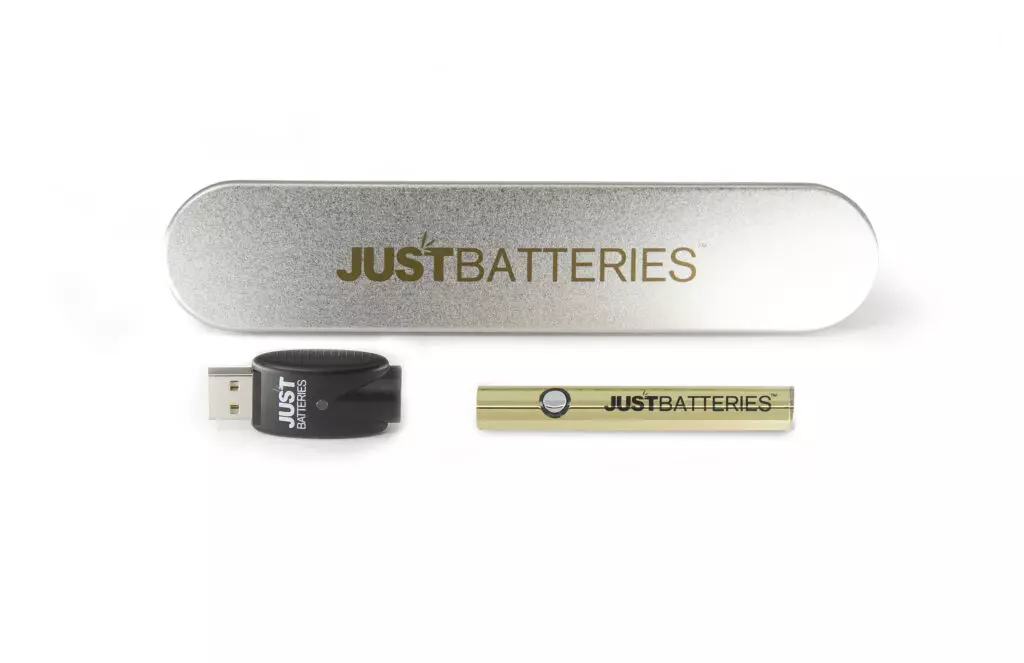Potential Respiratory Issues
In recent years, cannabidiol (CBD) has gained immense popularity as a natural remedy for various ailments. While research on its potential benefits is ongoing, growing concerns have been raised about the risks associated with using CBD vape pens. One particularly worrisome aspect is the potential impact on respiratory health.
Lung Irritation and Inflammation
Inhaling any substance, including CBD, can irritate and inflame the lungs. Vape pens heat CBD oil to create an aerosol that is inhaled. This process can damage delicate lung tissue, leading to symptoms like coughing, shortness of breath, and wheezing. Prolonged or excessive use of CBD vape pens may increase the risk of chronic respiratory issues such as bronchitis and even lung injury.

The composition of CBD vape oils can also contribute to respiratory problems. Some products may contain additives, solvents, or heavy metals that are harmful when inhaled. These substances can trigger allergic reactions, worsen existing lung conditions, and increase the risk of long-term damage.
Bronchitis and Asthma Exacerbation
For individuals with pre-existing respiratory issues like bronchitis or asthma, using CBD vape pens can be particularly risky. Inhaling CBD aerosol can exacerbate these conditions, leading to more frequent and severe symptoms. Bronchitis, an inflammation of the bronchial tubes, can worsen due to irritation caused by vaping. Asthma exacerbations are also possible, as CBD inhalation can trigger airway constriction and make breathing difficult.
Cardiovascular Risks
The use of CBD vape pens has become increasingly popular, but it’s crucial to understand the potential risks they pose to cardiovascular health. While research is still ongoing, some studies suggest a link between vaping CBD and adverse effects on the heart and blood vessels.
Blood Pressure Changes
While CBD oil is often touted as a natural remedy, its potential impact on cardiovascular health through vape pens raises concerns.
- One area of worry is the possible effect on blood pressure. Some studies suggest that vaping CBD may cause fluctuations in blood pressure, potentially leading to hypertension or hypotension.
- Another concern is the impact on heart rate. Research indicates that CBD vaping might lead to changes in heart rate, both increases and decreases, which could be problematic for individuals with pre-existing heart conditions.
- The long-term effects of CBD vaping on cardiovascular health are still being investigated. Further research is needed to fully understand the potential risks and benefits associated with this method of CBD consumption.
Increased Heart Rate
Using CBD vape pens can increase cardiovascular risks due to their potential impact on heart rate. Research suggests that vaping CBD may cause fluctuations in heart rate, leading to both increases and decreases. These changes in heart rate could be particularly dangerous for individuals with pre-existing heart conditions, as it can put additional strain on the cardiovascular system.
It is essential to consult with a healthcare professional before using CBD vape pens, especially if you have any underlying health conditions, including cardiovascular issues. They can provide personalized advice and help you weigh the potential risks and benefits.
Mental Health Concerns
While cannabidiol (CBD) has gained popularity as a natural remedy, concerns about its potential health risks are growing, particularly concerning CBD vape pens.
Anxiety and Paranoia
Mental health concerns like anxiety and paranoia can be exacerbated by certain substances, and the impact of CBD on mental well-being is a complex and evolving area of research. While some individuals report that CBD helps manage their anxiety, others may experience increased anxiety or paranoia after using it.
The effects of CBD on the brain are not fully understood, but it is believed to interact with the endocannabinoid system, which plays a role in regulating mood, sleep, and other cognitive functions. Some studies suggest that CBD may have anxiolytic effects, meaning it could potentially reduce anxiety symptoms. However, other research has shown that high doses of CBD can trigger feelings of paranoia or anxiety in some people.
It is important to note that individual responses to CBD can vary widely depending on factors such as dosage, frequency of use, individual physiology, and pre-existing mental health conditions.
Psychoactive Effects and Dependence
The potential psychoactive effects of CBD are complex and not fully understood. While CBD is generally considered non-psychoactive because it does not produce the “high” associated with THC, some individuals may experience subtle changes in mood or perception after using it.
CBD can interact with serotonin receptors in the brain, which play a role in regulating mood and emotions. This interaction may contribute to potential mood-altering effects, such as feelings of relaxation or mild euphoria.
However, it’s important to note that these effects are generally less pronounced than those associated with THC. Additionally, some individuals may experience anxiety or paranoia, particularly at higher doses.
The potential for dependence on CBD is a growing concern. While CBD is not considered addictive in the same way as substances like opioids or stimulants, prolonged or excessive use can lead to psychological dependence and withdrawal symptoms.
Withdrawal symptoms from CBD may include anxiety, irritability, insomnia, and changes in appetite.
Drug Interactions
Drug interactions are a crucial factor to consider when using any substance, including CBD. CBD can interact with various medications, potentially altering their effectiveness or increasing the risk of side effects.
Pharmaceutical Drug Interference
Drug interactions occur when one substance affects the way another substance works in the body. This can happen because CBD can affect enzymes responsible for metabolizing drugs or by altering the levels of certain substances in the bloodstream.
- CYP450 Enzymes: CBD can inhibit cytochrome P450 (CYP450) enzymes, which are involved in metabolizing many medications. This inhibition can lead to increased drug levels in the body, potentially causing toxicity or side effects.
- Blood Thinners: CBD may interact with blood thinners such as warfarin, increasing the risk of bleeding.
- Antidepressants and Anti-anxiety Medications: CBD might enhance or reduce the effects of antidepressants and anti-anxiety medications, leading to changes in mood or anxiety levels.
It is essential to consult with a healthcare professional before using CBD if you are taking any medications to avoid potential drug interactions.
Herb-Herb Interactions
Herb-herb interactions refer to the effects that occur when two or more herbal substances are used together. These interactions can be synergistic, meaning they amplify each other’s effects, or antagonistic, where one herb reduces the effect of the other.
When considering CBD alongside herbs, it is crucial to understand that research on herb-herb interactions involving CBD is still limited. However, given CBD’s potential impact on various bodily systems, there’s a possibility for interactions.

For example, CBD may interact with herbs known to affect the liver or blood clotting. It’s important to exercise caution when combining CBD with herbs like St. John’s Wort (known to affect mood and potentially interact with medications), or garlic or ginkgo biloba (which can impact blood thinning).
Consulting with a qualified healthcare professional or herbalist is crucial before incorporating CBD alongside herbs to ensure safe and informed use.
Contamination and Quality Control
Contamination in the manufacturing process of CBD products can introduce harmful substances into the final product. This contamination can arise from various sources, including improper sterilization techniques, contaminated equipment, or exposure to pollutants during production or storage.
Quality control measures are essential to minimize the risk of contamination and ensure the safety and purity of CBD products. These measures typically involve rigorous testing at different stages of production, from raw materials to the final packaged product. Testing may include analysis for contaminants like heavy metals, pesticides, solvents, or microbial growth.
Heavy Metals and Pesticides in Products
Contamination can occur during the manufacturing process of CBD products. This contamination might be caused by improper sterilization techniques, contaminated equipment, or exposure to pollutants during production or storage. Heavy metals and pesticides are two significant contaminants that can end up in CBD products.
Heavy metals like lead, mercury, or arsenic can leach into CBD oil from processing equipment or through the use of contaminated ingredients. Pesticides may be present if the hemp plants used to extract CBD were treated with these chemicals.
Both heavy metals and pesticides are harmful to human health. Exposure to these substances can lead to various adverse effects, depending on the type and amount of exposure.
Strict quality control measures are crucial for mitigating contamination risks. Manufacturers should implement robust testing procedures at different stages of production to ensure product safety. This includes testing for heavy metals, pesticides, solvents, and microbial contaminants.
Consumers should also choose reputable CBD brands that prioritize quality control and transparency. Look for products that have been third-party tested by independent laboratories.
Lack of Standardization and Regulation
The lack of standardization and regulation in the CBD industry poses significant risks to consumer safety. Without established guidelines for production, labeling, and quality control, there is a high likelihood of inconsistencies and potentially harmful products entering the market.
One major concern is the variability in CBD potency across different products. Without standardized testing methods, it can be difficult to know exactly how much CBD is present in a given product. This inconsistency makes it challenging for consumers to accurately dose and manage their intake.
Furthermore, the lack of regulation increases the risk of contamination, as previously discussed. Without strict quality control measures, harmful substances may find their way into CBD products, posing risks to consumer health.
The absence of clear labeling standards also presents a problem for consumers trying to make informed decisions. Many CBD products lack detailed information about ingredients, manufacturing processes, and potential side effects. This lack of transparency makes it difficult for consumers to assess the safety and suitability of a product.
Addressing these issues requires comprehensive regulation of the CBD industry. This would involve establishing standardized testing methods, setting clear labeling requirements, and enforcing quality control measures to ensure consumer safety.
Unknown Long-Term Effects
While CBD has gained popularity as a natural remedy, there are potential risks associated with its use, particularly through vaping. The long-term health effects of inhaling CBD are still largely unknown, and ongoing research is needed to fully understand the potential impact on various bodily systems.
Limited Research on Chronic Use
One major concern regarding the use of CBD vape pens is the lack of long-term studies. The relatively new nature of vaping CBD means there isn’t enough data to assess the full range of potential risks associated with prolonged or frequent use.
- Respiratory Health: The impact of chronic inhalation of CBD on lung health is unclear. There are concerns about potential damage to delicate lung tissue, increased risk of respiratory infections, and long-term effects on lung function.
- Cardiovascular Effects: Research on the long-term cardiovascular effects of CBD vaping is limited. While some studies suggest potential for changes in blood pressure and heart rate, more research is needed to understand the full implications for heart health.
- Mental Health: The long-term mental health impacts of CBD use, particularly through vaping, are not well understood. Some individuals may experience mood fluctuations or anxiety with prolonged use, but further research is needed to determine the extent and nature of these effects.
Potential for Unforeseen Health Consequences
The long-term consequences of using CBD vape pens remain largely unknown due to the limited availability of comprehensive research studies. This lack of data makes it difficult to fully assess the potential risks associated with prolonged or frequent use.
One significant concern is the potential for unforeseen health complications that may develop over time. For example, while CBD oil itself is generally considered safe, the process of heating it to create an aerosol for vaping could lead to the formation of harmful byproducts.
Additionally, individual responses to CBD can vary widely. What might be a harmless effect for one person could have detrimental consequences for another, especially with long-term use. Factors like genetics, existing medical conditions, and dosage play a role in determining how an individual reacts to CBD.
Given these uncertainties, it is crucial to exercise caution and prioritize safety when considering the use of CBD vape pens. Consulting with a healthcare professional is essential for personalized advice and guidance.
Buy CBD vape pens for calm and clarity
- How To Manage Post-treatment Care For Marionette Line Fillers In Surrey - September 22, 2025
- Chin Smoothing With Botox In Gomshall, Surrey - September 22, 2025
- How To Lift A Sagging Neck With Nefertiti Neck Lift In Kingston Upon Thames - September 20, 2025
